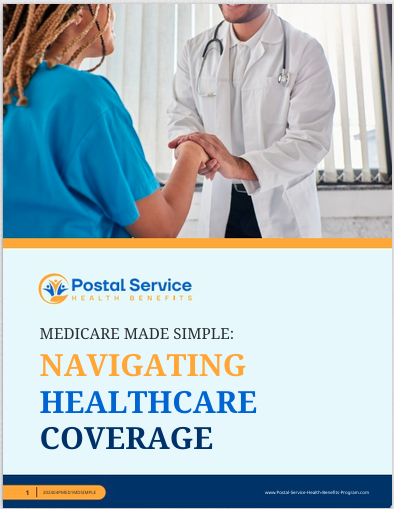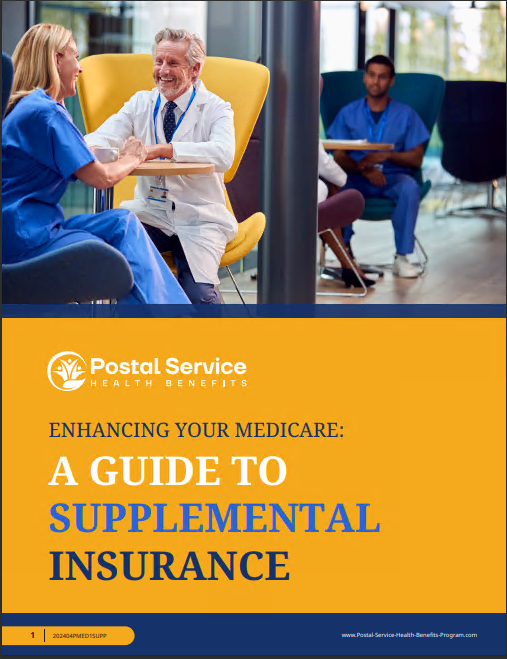Key Takeaways
-
USPS employees and retirees can simplify their transition to the new Postal Service Health Benefits (PSHB) program in 2025 by actively using the support tools and resources made available.
-
Understanding how and when to access enrollment tools, Medicare coordination support, and official portals helps you make informed decisions during Open Season and beyond.
Why USPS Developed These Tools
The Postal Service Health Benefits (PSHB) Program officially replaced the Federal Employees Health Benefits (FEHB) Program for USPS workers and retirees in 2025. This change marks a major shift in how your health coverage is administered and coordinated with Medicare. To ease the transition, USPS and the Office of Personnel Management (OPM) rolled out a series of tools designed to guide you through every stage—before, during, and after enrollment.
Rather than leaving employees and retirees to figure it out on their own, these tools were specifically created to:
-
Minimize confusion about new enrollment procedures
-
Clarify Medicare Part B requirements
-
Help you compare PSHB plans effectively
-
Offer direct access to resources like brochures, cost estimators, and FAQs
What You Need to Know About Open Season
The annual Open Season remains your key window to make changes to your health coverage. In 2025, Open Season occurred from November to December. During this time, you could:
-
Enroll in a PSHB plan if you hadn’t already
-
Switch plans within the PSHB program
-
Add or remove eligible family members
But unlike previous years under FEHB, this Open Season also carried implications for your Medicare enrollment if you’re eligible or soon to be.
Essential Tools and Portals USPS Offers
To navigate this shift, USPS has equipped you with essential platforms and guidance materials. Here’s what you should be using right now.
1. LiteBlue for Active Employees
If you’re a current USPS employee, LiteBlue remains your primary platform to manage benefits. Under the PSHB transition, it now includes:
-
A PSHB-specific enrollment portal
-
Personalized plan comparisons
-
Pre-filled data based on your current benefits
-
Reminders about key deadlines
2. KeepingPosted.org for Retirees
As a retiree, you should visit KeepingPosted.org. This site was updated in 2025 to handle all PSHB-related activity for annuitants. It includes:
-
Step-by-step enrollment guidance
-
Interactive plan comparison tools
-
Medicare coordination resources
-
Annuitant FAQs focused on PSHB
3. PSHB Navigator Help Line
A dedicated phone support line (1-833-712-7742) was launched in 2025 for both employees and retirees. This resource provides:
-
Answers to specific questions about your eligibility
-
Help with enrollment steps and plan selection
-
Clarification on Medicare Part B coordination
4. Enrollment Letters and Automatic Notifications
In 2024 and early 2025, USPS sent automatic mailings and emails to individuals affected by the transition. These notifications included:
-
Which plan you would be auto-enrolled into if no action was taken
-
Instructions for making changes during Open Season
-
Medicare Part B coordination requirements
If you haven’t received or reviewed yours, it’s critical to request a copy through the Help Line or USPS HR.
Medicare Part B and the PSHB Program
A significant change in 2025 is the required Medicare Part B enrollment for certain Postal Service annuitants and their family members. If you are eligible for Medicare and:
-
Retired after January 1, 2025
-
Are an eligible family member of a Medicare-eligible annuitant
…then you must enroll in Medicare Part B to maintain full PSHB coverage.
Who Is Exempt?
You are not required to enroll in Medicare Part B if:
-
You retired on or before January 1, 2025
-
You were age 64 or older as of January 1, 2025
-
You reside outside the United States
-
You are covered through Veterans Affairs (VA) or Indian Health Service (IHS)
How USPS Supports Your Medicare Decision
To assist with Medicare coordination:
-
USPS offered a Special Enrollment Period (SEP) in 2024 that ran from April 1 to September 30.
-
Informational sessions and online resources were available to help determine if you should enroll.
-
PSHB plan brochures in 2025 clearly indicate how cost-sharing changes if you are enrolled in both PSHB and Medicare.
How to Compare Plans Using USPS Tools
Understanding how your new plan works is easier when you take full advantage of the tools USPS has made available.
Use the Cost Estimator Tool
This tool lets you:
-
Estimate total annual costs based on your health needs
-
Compare deductible amounts, coinsurance percentages, and copayment ranges
-
View the impact of enrolling in Medicare Part B on your total expenses
Download Plan Brochures
Each PSHB plan has an official brochure with detailed breakdowns of:
-
In-network vs. out-of-network services
-
Annual out-of-pocket maximums
-
Prescription drug coverage (including Medicare Part D integration)
These brochures are available on LiteBlue, KeepingPosted.org, and OPM’s website.
Explore the FAQ Libraries
Common questions USPS employees and retirees have asked were compiled into searchable FAQ databases. Topics include:
-
When and how to enroll
-
Whether dependent coverage changes under PSHB
-
What happens if you miss Open Season
Prescription Drug Coverage and Your Responsibilities
All PSHB plans now include integrated Medicare Part D prescription drug coverage for those enrolled in Medicare. Here’s what you need to know:
-
You will be automatically enrolled in a Medicare Part D Employer Group Waiver Plan (EGWP) if you qualify.
-
You may opt out, but doing so also removes your prescription drug coverage under PSHB.
-
You cannot re-enroll in the drug plan later unless you qualify for a new enrollment period.
The 2025 benefits include:
-
A $2,000 annual out-of-pocket cap on prescription drug costs
-
$35 monthly insulin limit
-
Access to an expanded nationwide pharmacy network
Know Your Deadlines and Key Dates
Being aware of dates can help you avoid missed opportunities or unexpected gaps in coverage.
-
April 1 to September 30, 2024: Special Enrollment Period for Medicare Part B
-
November to December 2024: PSHB Open Season
-
January 1, 2025: PSHB officially replaces FEHB for USPS employees and retirees
What You Can Still Do Now
Even though the initial transition is complete, ongoing participation is key. Here are the actions you can still take in 2025:
-
Review your plan coverage annually
-
Call the PSHB Navigator if you have questions about future Open Seasons
-
Stay informed through KeepingPosted.org or LiteBlue
-
Verify your Medicare enrollment status if applicable
Stay Informed, Stay Covered
The transition to the PSHB program doesn’t have to be overwhelming. With the USPS tools and resources now available, you have what you need to make confident, informed decisions. Whether you’re actively working or retired, using these platforms is not optional—it’s essential.
If you still have questions or feel unsure about your next steps, speak with a licensed agent listed on this website to get professional guidance tailored to your situation.






